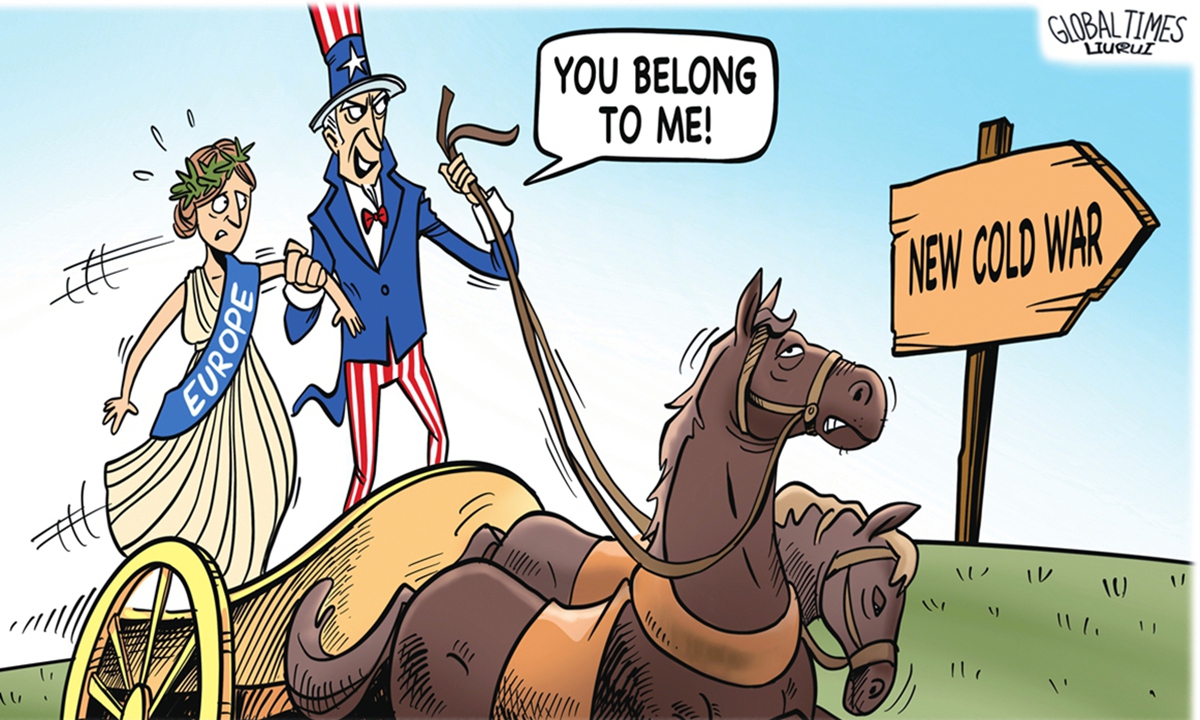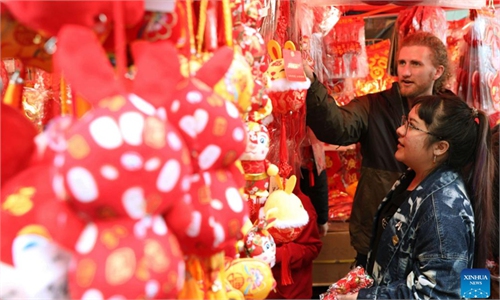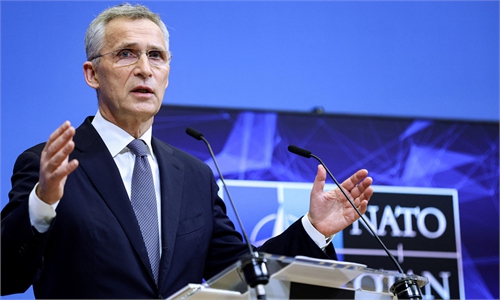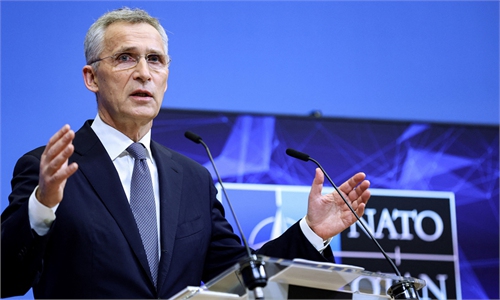
Illustration: Liu Rui/GT
The European Union and NATO signed a joint declaration on January 10 which stated that "China's growing assertiveness and policies present challenges that we [the EU and the NATO] need to address." This is the first time that the two blocs have expressed their common stance on China in an official document, exposing their prejudice against and arrogance toward China.Since the upheaval in Eastern Europe resulting from the disintegration of the Soviet Union, NATO, a product of the Cold War, has been seeking legitimacy for its existence. Washington, which leads the military bloc, uses NATO as a tool to maintain and expand its hegemony. On the other hand, the US is supposed to fulfill its duty as a necessary provider of public security products, binding its own interests to the security demands of NATO members. Therefore, it constantly seeks "enemies" to maintain NATO's sustainable development. After its biggest foe, the Soviet Union, disintegrated, a crisis of legitimacy hit the group. As a result, it had to pursue transformation to survive.
In almost all NATO's strategic concept documents, the Soviet Union or Russia has been labeled as its enemy. The NATO 2022 Strategic Concept listed Russia as "the most significant and direct threat to Allies' security and to peace and stability in the Euro-Atlantic area," and China as "systemic challenges." NATO intends to shift to the Indo-Pacific region and even the whole world. But when I visited several European countries in 2022, I was impressed that the Europeans will not necessarily embrace NATO's such shift and the move of targeting China.
First, with this transformation, NATO will extend its tentacles to the Asia-Pacific region, which is mainly promoted by the US and is in the best interests of the Americans. The US is attempting to use NATO as its main tool to fully counter China's rise. The Biden administration has changed its Republican predecessor's manner in which the US coped with China by itself alone, but it is now trying to unite its allies.
The Europeans, however, still regard China as "a partner for cooperation and negotiation, an economic competitor and a systemic rival," and do not fully support Washington to use NATO against China. Without sufficient military spending, NATO cannot meet its ambition of shifting to the Asia-Pacific with China as its main target.
Many Europeans understand that this "dual transformation" is more in line with the US interests than the European ones. Therefore, if asked to spend money to help the US deal with China, they will obviously lack motivation.
Furthermore, Europe would prefer NATO to be based in Europe, to actively and steadily respond to Russia-related issues, and handle the construction of the European security mechanism. There is certain consensus on this point in both Eastern and Western Europe that neither wants NATO to jump out of Europe, nor go to the Asia-Pacific. NATO actively instigated that "China is a strategic threat," but received negative responses from most European countries. This is reflected in the G7 Leaders' Summit 2022. Many European countries, including France and Germany, opposed a confrontational attitude toward China, and believed that a more balanced strategy should be adopted, and more European interests must be taken care of.
Additionally, the Europeans hope to take a free ride from NATO to solve the problem of the security mechanism, and at the same time, form more strategic autonomy to show the interests of the Europeans themselves. The expansion of NATO has been provided with many legal explanations by the European political and academic circles, and it has been misleadingly described as a "defensive organization." The active participation of its member states, especially Central and Eastern European countries, has achieved the continuous expansion of NATO. However, the Russia-Ukraine conflict has made the Europeans understand that binding their own interests to the interests of the US will make them suffer heavy losses, and the Europeans need to have their own security mechanisms.
Washington has never given up on achieving the strategic goal of targeting China. The US' political mobilization has not been easy. It faces many challenges in persuading its allies to focus their energy and motivation on China. As the Russia-Ukraine conflict continues, the rift between the US and some European countries is also growing, and mutual dissatisfaction is deepening around key issues such as energy prices and the Inflation Reduction Act, the Biden administration's flagship energy policy. Hence, we need to see that some European countries recognize that rationality and pragmatism are becoming more and more precious, which also drives the EU and many European countries to emphasize the need for dialogue with China to properly resolve differences.
The author is a research fellow on European studies at the Chinese Academy of Social Sciences. opinion@globaltimes.com.cn



